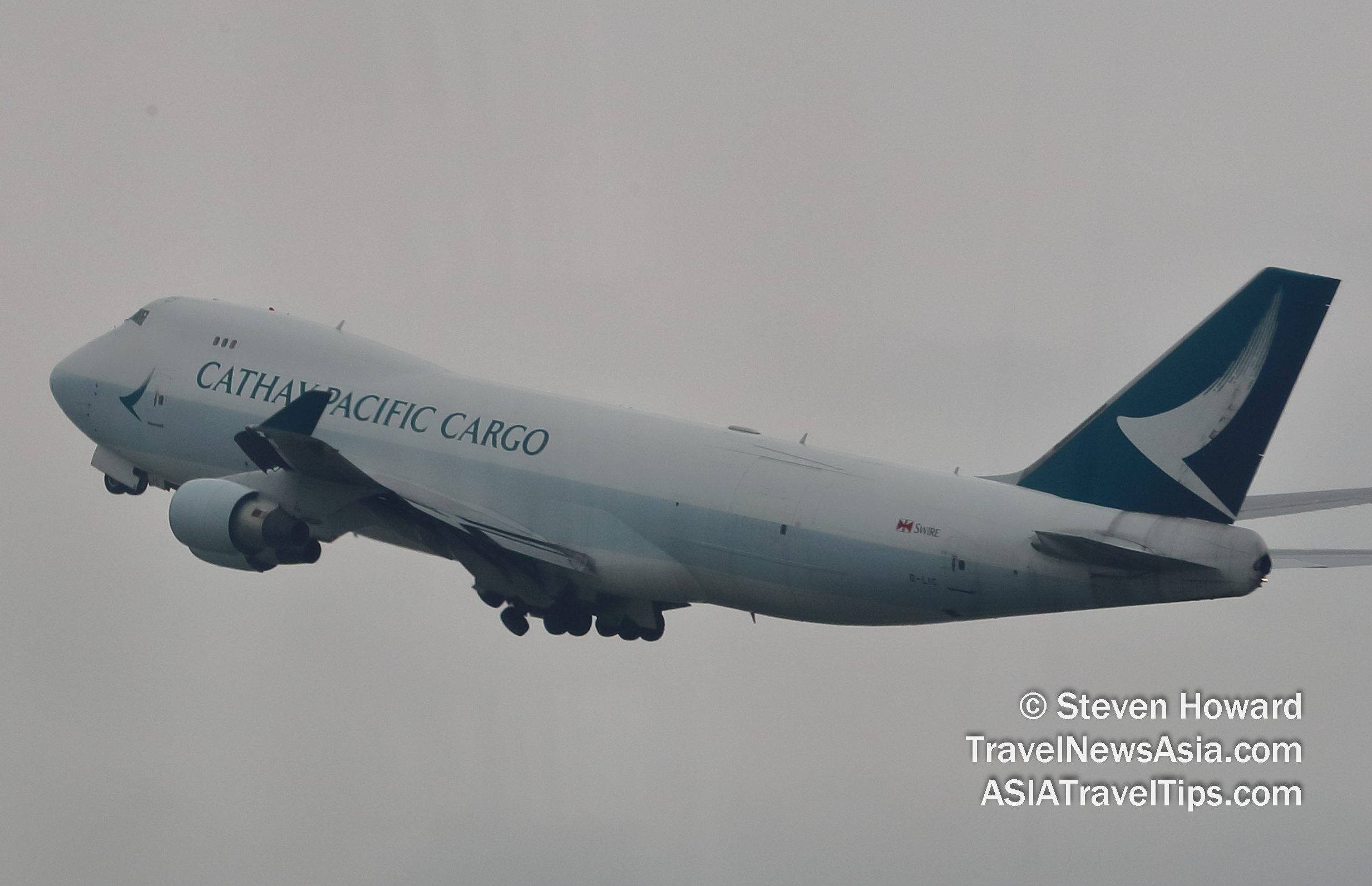|
Cathay Pacific and Cathay Dragon carried a
combined total of 2,623,764 passengers in November 2019, a drop of
9% compared to the same month last year.
Passenger load factor
decreased by 3.2 percentage points to 80.1%, while capacity,
measured in available seat kilometres (ASKs), decreased by 1.5%.
In the first 11 months of 2019, the number
of passengers carried dropped by 0.4% and capacity increased by
5.7%, as compared to the same period for 2018.

Cathay Pacific
Group Chief Customer and Commercial Officer Ronald Lam said, �As
with the past few months, November continued to be very
challenging for both Cathay Pacific and Hong Kong, with sentiment
for travel still weak. In November, our inbound Hong Kong traffic
dropped 46% compared to the same period in 2018 � a further
slowdown from the 35% drop seen in October. Outbound Hong Kong
traffic, meanwhile, was down 8% against the same time last year �
a slight improvement over previous months. Overall, passenger load
factor dropped 3.2 percentage points to 80.1%. Our increasing
reliance on transit Hong Kong traffic, which has been less
impacted, together with intense competition has meant overall
yield remained under significant pressure.
�Our regional
routes, in particular mainland China and Northeast Asia, continue
to experience weak demand for travel into Hong Kong. Travel
sentiment was also soft on routes to and from the US before
Thanksgiving week � traditionally a very strong period for premium
class travel. There were a few bright spots in our network, such
as our India routes, which remained robust and generated good
demand between India and North America. Traffic between Europe and
the Southwest Pacific � an important transit passenger stream for
our network � also remained healthy.
�Looking forward, we
continue to see a significant shortfall in inbound Hong Kong
advance bookings, particularly from mainland China and other
regional markets, as compared to the same snapshot last year. This
shortfall has been partially offset by the improvement of transit
passenger traffic.�

The two airlines
carried 177,964 tonnes of cargo and mail last month, a drop of
3.9% compared to the same month last year. The cargo and mail load
factor fell by 1.5 percentage points to 68.6%. Capacity, measured
in available freight tonne kilometres (AFTKs) was down by 3.8%
while cargo and mail revenue freight tonne kilometres (RFTKs)
dropped by 5.8%. In the first 11 months of 2019, the tonnage fell
by 6.4% against no change in capacity and a 6.8% decrease in
RFTKs, as compared to the same period for 2018.
�As for our cargo business, both load factor
and yield further improved against the previous month in November,
which is traditionally a peak month of the year. Exports from
mainland China, Hong Kong and Taiwan remained robust. As demand
from traditional retail and new product releases tailed off
towards the latter half of the month, strong e-commerce traffic
surged around the Singles� Day shopping holiday in mainland China
as well as Black Friday, to which we successfully catered with
additional charter requests to Southeast Asia,� said Mr. Lam.
�While our cargo
performance this year remains significantly below the record
levels seen in 2018, we are cautiously optimistic about 2020
despite anticipating a weak first half. In our continual efforts
to drive the competitiveness of the Hong Kong cargo hub, we were
pleased to have announced the introduction of a new Terminal
Charge concession for export shipments from Hong Kong, which will
take effect from 1 April 2020 and make Cathay Pacific and Hong
Kong an even more compelling choice for our cargo customers.
�Overall, our expectation is that the rest of 2019 will remain
incredibly challenging and we continue to expect our second-half
financial results to be significantly below those of our first
half. As a business we continue to closely monitor market
sentiment and global travel trends, remaining agile in our
operations and ensuring our passenger and cargo capacity is best
aligned with demand. In light of the immediate commercial
challenges we are facing, we have reluctantly made the decision to
reduce our seat capacity in 2020 by 1.4% year-on-year as opposed
to our original plan of 3.1% growth, meaning that for the first
time in a long while our airlines will reduce in size.�
See latest
Travel News,
Interviews,
Podcasts
and other
news regarding:
Cathay Pacific,
Hong Kong.
|
Headlines: |
|
|
